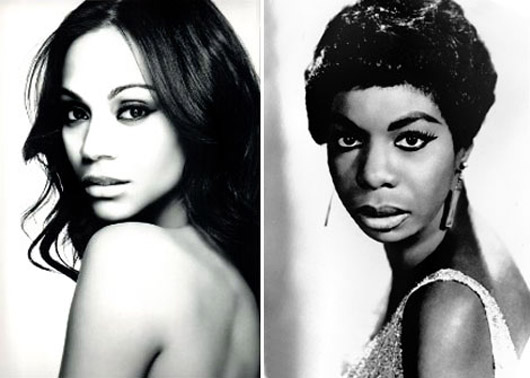The very first London Feminist Film Festival, held between Nov 29 - Dec 2, 2012 at the Hackney Picturehouse, is seeking submissions from African feminists. The organizers are actively working to solicit submissions from filmmakers with diverse backgrounds, including the LGBTI Diaspora. I may actually submit something, given how visually…
-
-
Zoe Saldana to Star in Nina Simone Biopic: How the Dark vs. Light Skin Debate Misses the Point about Black Women and the Media
In case you missed it, Hollywood is gearing up to release a biopic of Nina Simone, an African-American singer, pianist, and civil rights activists whose music was highlight influential in the fight for equal rights for blacks int he US. Zoe Saldana, a light-skinned Dominican actress has been cast to…

